The world is sending soldiers back to Haiti — this time without Canada's help
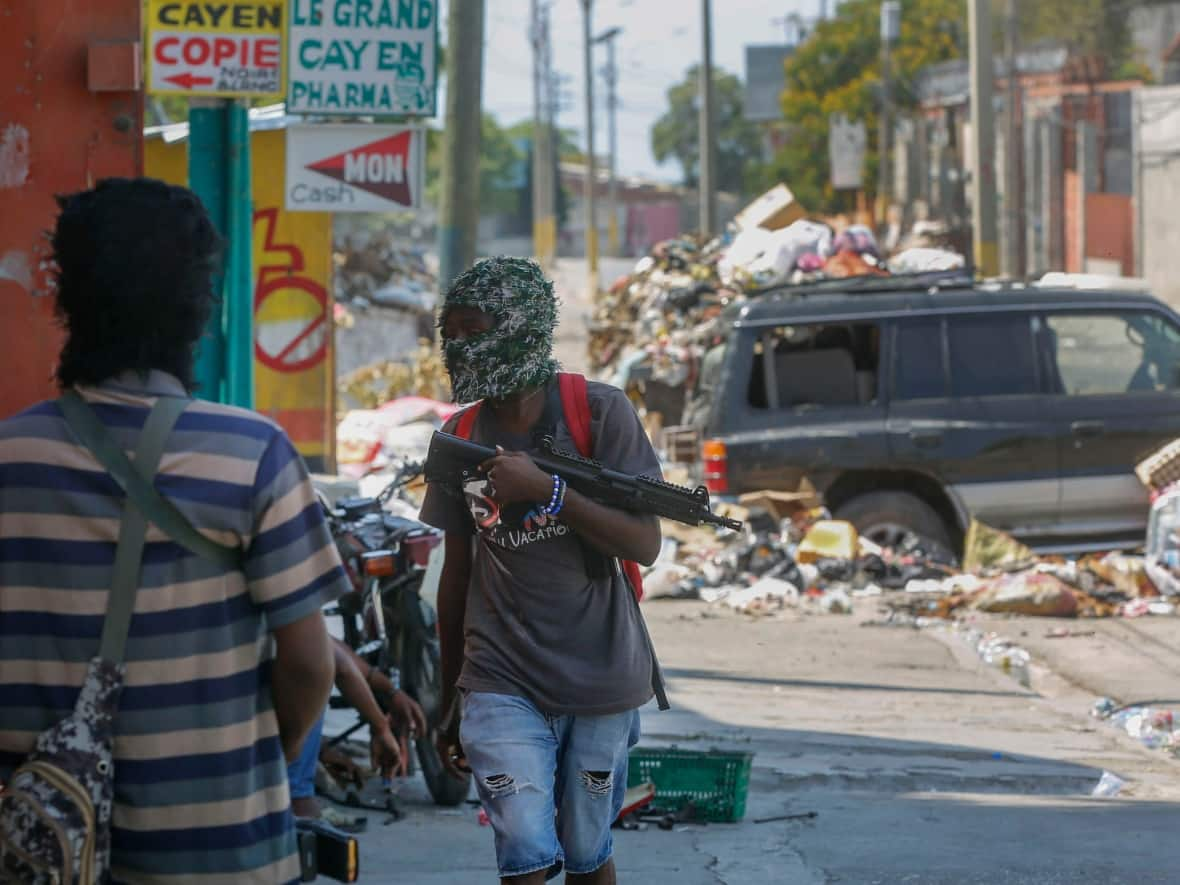
- Oops!Something went wrong.Please try again later.
- Oops!Something went wrong.Please try again later.
Why is Canada involved in Haiti? Why is it Canada's job to fix a failed state?
Those are two of the most common questions CBC News hears from Canadians about the current state of anarchy and widespread gang violence in this Caribbean island nation. The answers are complicated — because Canada's involvement in the international response to Haiti's plight is much more limited than it might appear.
In fact, the government of Prime Minister Justin Trudeau did not volunteer for the job of fixing Haiti. As they say in the army, Canada essentially was "volun-told" to sign up for the daunting task of restoring order there — and the federal government has been doing everything it can to limit its role ever since.
It was the Biden administration that tried to drop the Haitian hot potato in Canada's lap, arguing that Washington's hands were filled with larger global matters, such as the war in Ukraine and threats to Taiwan.
Nearly two years ago, U.S. Secretary of State Antony Blinken began to talk to Caribbean leaders and others about Canada taking the lead on an "international stabilization force" for Haiti.
It was an assignment the Trudeau government appeared determined to ditch.
WATCH | Should Canada intervene in Haiti?:
It's rare for a Canadian government to resist heavy and sustained pressure from an American administration, but that's what happened in the case of the Multinational Security Support Mission for Haiti.
But unlike Jean Chrétien, who turned down Washington flat when asked to contribute troops to the invasion of Iraq, Trudeau chose to run out the clock.
Instead of soldiers, Canada sent fact-finding missions to Haiti to look into the possibility of a mission. It sent aircraft to fly over Port-au-Prince and contribute intelligence to the Haitian National Police. It even sent two Kingston-class coastal defence vessels to Haiti to patrol Port-au-Prince Bay, ostensibly to stop gangs from attacking shipping or launching amphibious attacks on rivals' territory.
In other words, it did everything short of putting boots on the ground.
And through it all, the message coming from Trudeau, Bob Rae, who is Canada's ambassador to the United Nations (Trudeau's chief envoy on Haitian matters), and Canada's ambassadors in Haiti was consistent: Canada does not wish to repeat the mistakes of past deployments.
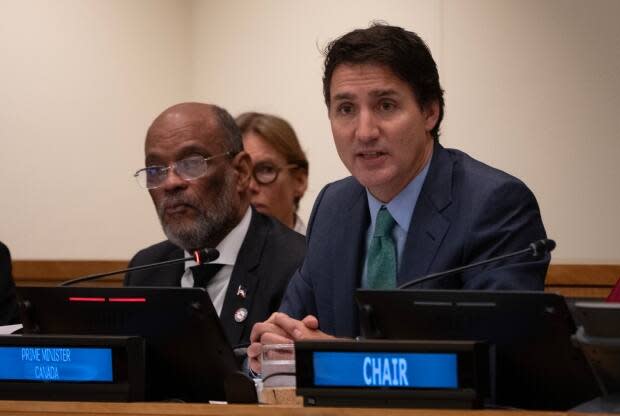
Trudeau repeated that message this past week, saying that changes in Haiti "have to come from within the Haitian society and have to be executed by Haitian police and by others."
"We have to come to grips a bit with the history of large military interventions, where basically you're just pushing aside all of the Haitian institutions and [saying], 'We'll do this,'" Trudeau said. "And then the pressures come from back home, saying, 'Well, how long are those troops going to be there?'
"Troops come out again, and then where are you? What have you got left?"
The federal government has consistently couched its position in terms of respect for Haiti's self-determination.
"We believe very strongly that Haitian institutions themselves have to play the leadership role," Rae said at a CARICOM summit in the Bahamas last year. "We don't think it works for Canada or any other country to substitute itself for institutions that should be able to do the job."
Trudeau and Rae have often implied that Haiti's leaders have failed to live up to their own responsibilities — a view widely shared by Haitians themselves.
"We think with the appropriate kind of help and assistance, and whatever it is that they ask for and feel that they need, yes, we're going to do it," Rae said at the CARICOM summit. "But it's really important for the Haitian political elite to take some responsibility for what's taking place and what continues to take place.
"That's exactly why in all of our discussions in Haiti on the ground ... we're saying to all other leaders, you've got to get together, you've got to create a path that leads to an election but ... also leads to it strengthening all of the institutions that make up a democratic society."
The Trudeau government stuck to that message through more than a year of American pressure, while carefully avoiding a public split with the U.S. over the mission. Ottawa essentially ragged the puck and raised doubts until the Biden administration got tired of pushing.
Fortunately for Canada, at that point African and Caribbean countries began to express a willingness to step up and take on the mission themselves.
Why isn't Canada doing more to help Haiti?
All of which brings up another question a lot of Canadians have been asking CBC News about Haiti: Why isn't Canada sending peacekeepers, as it has in the past?
Canada is contributing $80.5 million to the multinational security force but will not send soldiers or police to participate directly.
The U.S., meanwhile, is giving $300 million US to the mission, or about $406 million Cdn. Both countries are also earmarking side donations for humanitarian relief.
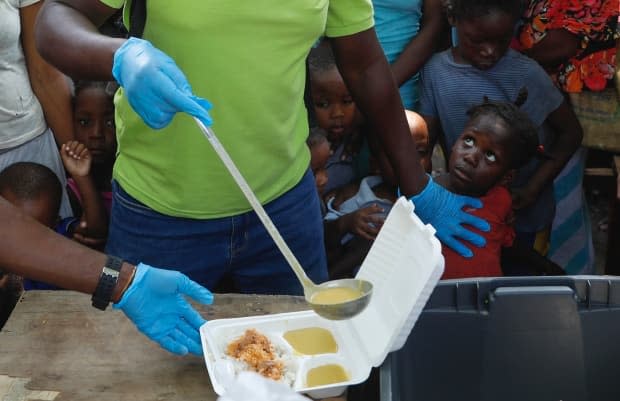
A very small number of RCMP officers are deployed to Haiti now, mostly in training roles. Their number fluctuates; the terms of the deployment allow for up to 45 Mounties to be in Haiti at a time, but their current complement numbers in the single digits.
Instead, the soldiers and police making up the multinational security force will come from Kenya, Benin, Jamaica, Trinidad, Guyana, Barbados and a few other Caribbean island nations. Kenya will take the lead and will be the first to deploy.
The weight of symbolism
This will be the first major multinational security mission led by an African country outside of Africa. It will differ from past UN-run missions in that it is being assembled almost entirely by Black African and Caribbean former colonies, rather than the European and American powers that tended to dominate before.
Those nations will feel a heavy weight of symbolism as they struggle to put the world's first Black republic — a nation born out of a successful slave rebellion — back on its feet.
For Kenya, there's a chance to win considerable international credit if it's able to pull the mission off successfully. President William Ruto's government has made it clear it sees the mission as a kind of coming-full-circle for Kenya — from British colony to a responsible world citizen doing its part for international peace and security.
The Kenyan government has shown some qualms, though, as the security situation in Haiti continues to deteriorate and now that the government of outgoing Haitian Prime Minister Ariel Henry has fallen apart. So have some other participants.
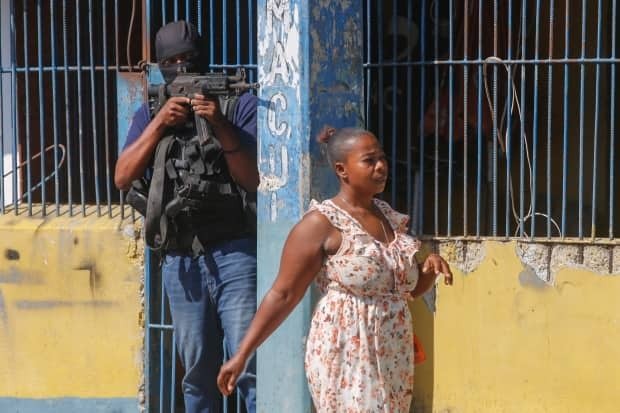
This would be a formidable security mission for any nation. For the multinational security force, Haiti will be an extremely difficult environment.
Haitians have expressed deep frustration with past interventions by the United Nations. UN peacekeepers earned an unsavoury reputation when some of them took advantage of impoverished Haitian girls. Nepalese army peacekeepers cut corners on wastewater disposal at their base in Haiti in 2010, introducing cholera to a country that had eradicated it more than a century before.
The disease has since killed tens of thousands of Haitians — more than the violence of the past few years. It didn't help that the UN dragged its feet for five years before admitting its responsibility for the epidemic.
A security mission unlike any other
The fact that the proposed deployment is led by and composed of Black African and Caribbean nations could give it greater acceptance in Haiti and help to soothe fears that Haiti's sovereignty is again being disregarded — or that the U.S., Canada and the former colonial powers of Europe are calling the shots.
But in practical terms, this mission will be more difficult than any before in Haiti. Canadian peacekeepers faced disorder and gang violence — but the gangs of 20 years ago were less organized and much less well armed than the gangs of today.
"This is the worst of the worst," said Jacqueline Charles, longtime Haiti correspondent for the Miami Herald. "Haiti's had so many different periods of instability and gang violence. And when you think back to 2004, we were talking about just a handful of gangs and you knew where they were.
"Today, you're talking about gangs who control, I would say, over 80 per cent of the capital even before this violence flared up.
"In the last two weeks, what we're seeing is co-ordinated violent attacks by gangs that normally don't speak to each other. They've orchestrated two major prison breaks. We've got thousands of people on the streets, murderers, kidnappers, other kinds of criminals. They're still out there. You have a police force that is overworked, outgunned. So I don't think anybody has seen this in Haiti in recent years."
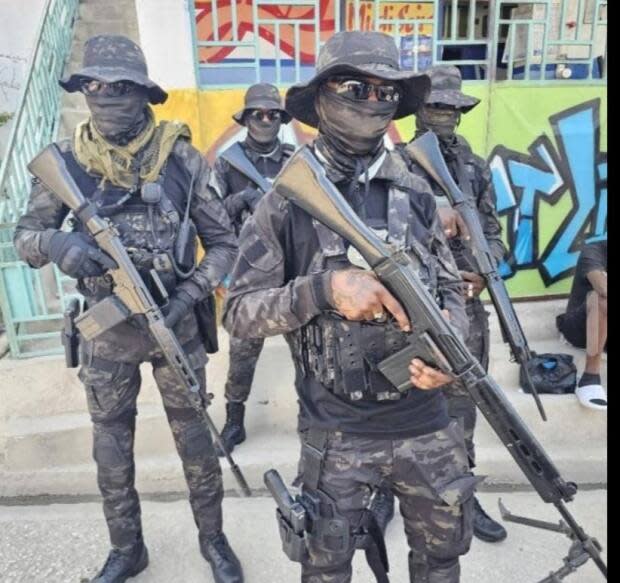
This week, members of the 5 Seconds gang appeared on the streets of the capital in brand-new camouflage fatigues, sporting new FAL rifles, assault sidearms and radios — and looking more like a paramilitary unit than a gang.
The gangs also have all of the advantages of being locals. They can fade away into a crowd whenever they need to — "like a fish disappearing into a school of fish," as a former Canadian soldier once put it.
Canadian military experts told CBC News that any mission to pacify and retake control of the Haitian capital from these gangs would require a force vastly stronger than the one currently proposed.
And the question Prime Minister Trudeau asked would still remain: What happens when the foreigners leave again?

